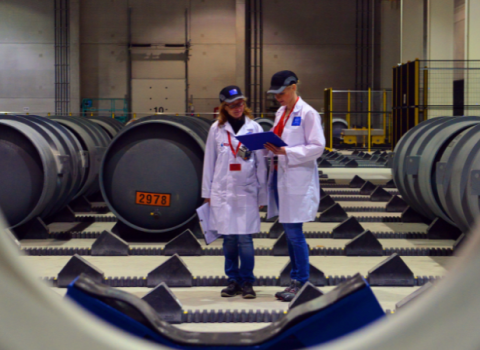Renewables are now providing more energy than nuclear power plants in the most populated countries in the world, according to a new industry report.
Eight countries with nearly half of the world’s population – China, Germany, Japan, Brazil, India, Mexico, the Netherlands, and Spain – now generate more electricity from non-hydro renewables than from nuclear power, according to the World Nuclear Industry Status Report 2015.
While global nuclear power generation increased by 2.2 per cent in 2014, solar power surged by 38 per cent and wind by 10 per cent.
With construction overruns, rising costs, tougher compliance rules, ageing reactors and growing public opposition in the wake of the disaster at the Fukushima nuclear generator in Japan, the nuclear industry remains in decline, and nowhere more so than in the EU. Construction of new reactors is down everywhere, apart from in China.
“The impressively resilient hopes that many people still have of a global nuclear renaissance are being trumped by a real-time revolution [energy] efficiency, plus renewables, plus storage,” says Jonathan Poritt, co-founder and trustee of the Forum for the Future, in a foreword to the report.
The report says the use of renewables including wind and solar power, is beginning to take hold and become competitive.
“The data do not support claims that nuclear production can be expanded faster than, or even nearly as fast as, modern renewables, whose small units and lower capacity factors are more than offset by their short lead times, easy manufacturability and installation, and rapidly scalable mass production,” the report says.
In China, as in the previous two years, electricity production from wind alone exceeded that from nuclear.
In 2014 there was a sharp drop in new nuclear investment, with construction starting on only three new units. Over the last ten years, nuclear has struggled to keep pace with renewables.

Source: World Nuclear Industry Status Report 2015: 92
With investment in nuclear power down, the report observes a widening gap between renewable energy and nuclear electricity production.

Source: World Nuclear Industry Status Report 2015: 93
Nuclear power in Europe
Close to half of the world’s 31 countries with nuclear power stations are located in Europe. In 2014 they accounted for 34.5 per cent of the world’s nuclear production, the report says.
A full half of that output came from France, which has the largest nuclear operator in the world, state-controlled EDF, which is struggling with massive debts and increasing operating costs. A political target is in place to reduce nuclear output by a quarter by 2025.
In the first half of 2015, two reactors in Europe were shut down: the Doel-1 in Belgium and Grafenrheinfeld in Germany.
Like France, Belgium relies heavily on nuclear in its energy mix. In 2002, nuclear phase-out legislation required the shutdown of all of Belgium’s nuclear plants after 40 years, so based on their start-up dates, the country’s other six plants should be shut down between 2015 and 2025.
Alongside Belgium, Germany, once a major user of atomic power, has decided to phase out its remaining plants. Sweden, Italy and Spain are making similar moves.
Meanwhile, Hungary and Slovenia achieved their greatest nuclear production in 2014, while a further two EU countries, Lithuania and Poland, have plans to build new reactors.
UK nuclear faces legal challenge
In the UK, electricity output from renewable sources, including hydropower, overtook the output from nuclear for the first time ever.
Renewables generated 20 per cent more power than in the previous year, providing 19.2 per cent of electricity. Nuclear power shrank by almost 10 percent, delivering 19 per cent of total electricity generation.
Hinkley Point C, the first new-build nuclear plant to be approved in the UK for decades, does not represent the beginning of a new era of nuclear investment, the report says.
Fukushima fallout
Meanwhile, the shadow of Fukushima continued to hang over Japan last year: no nuclear power has been generated in the country since September 2013.
The Japanese disaster, which the report estimates has cost $100 billion to date, has prompted a global reassessment, but surprisingly Japan has not turned against nuclear power, with plans for the gradual restoration of nuclear energy’s contribution to the country’s energy mix.





 A unique international forum for public research organisations and companies to connect their external engagement with strategic interests around their R&D system.
A unique international forum for public research organisations and companies to connect their external engagement with strategic interests around their R&D system.